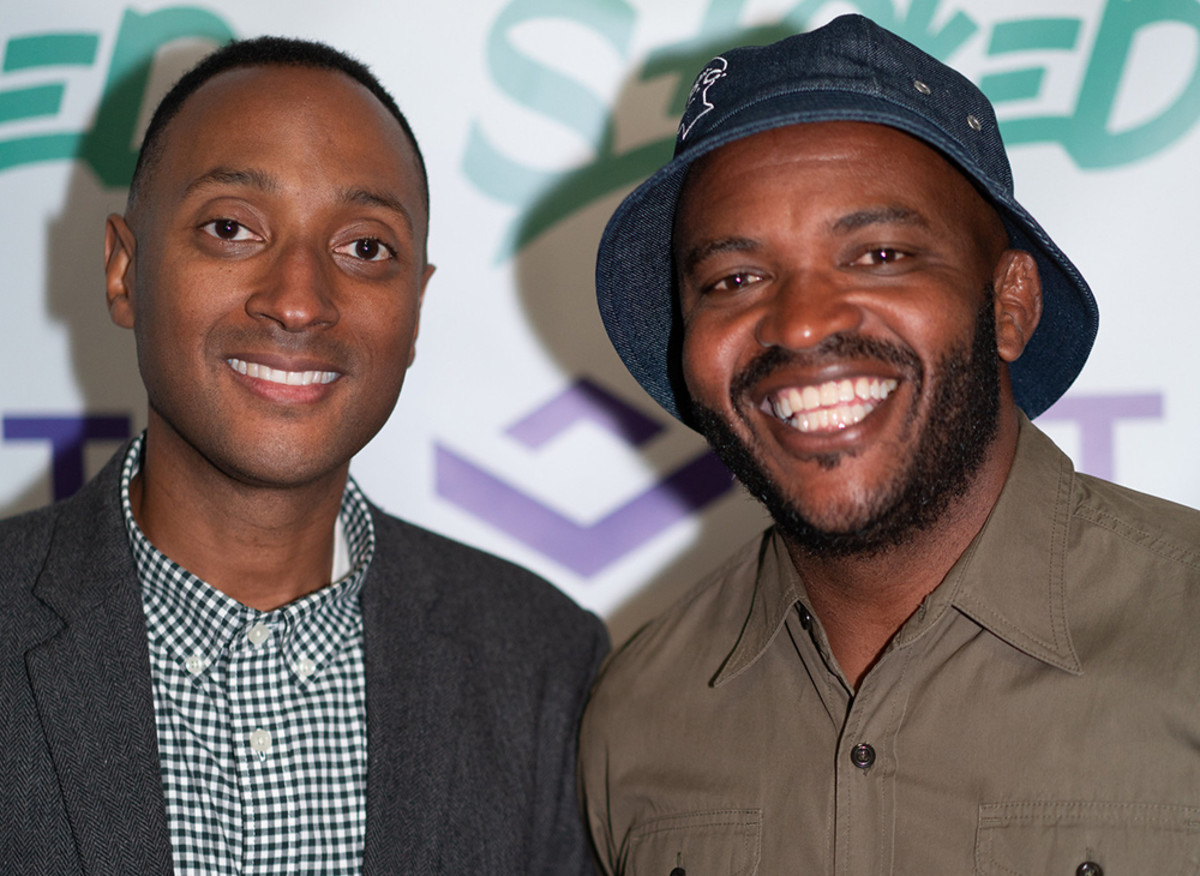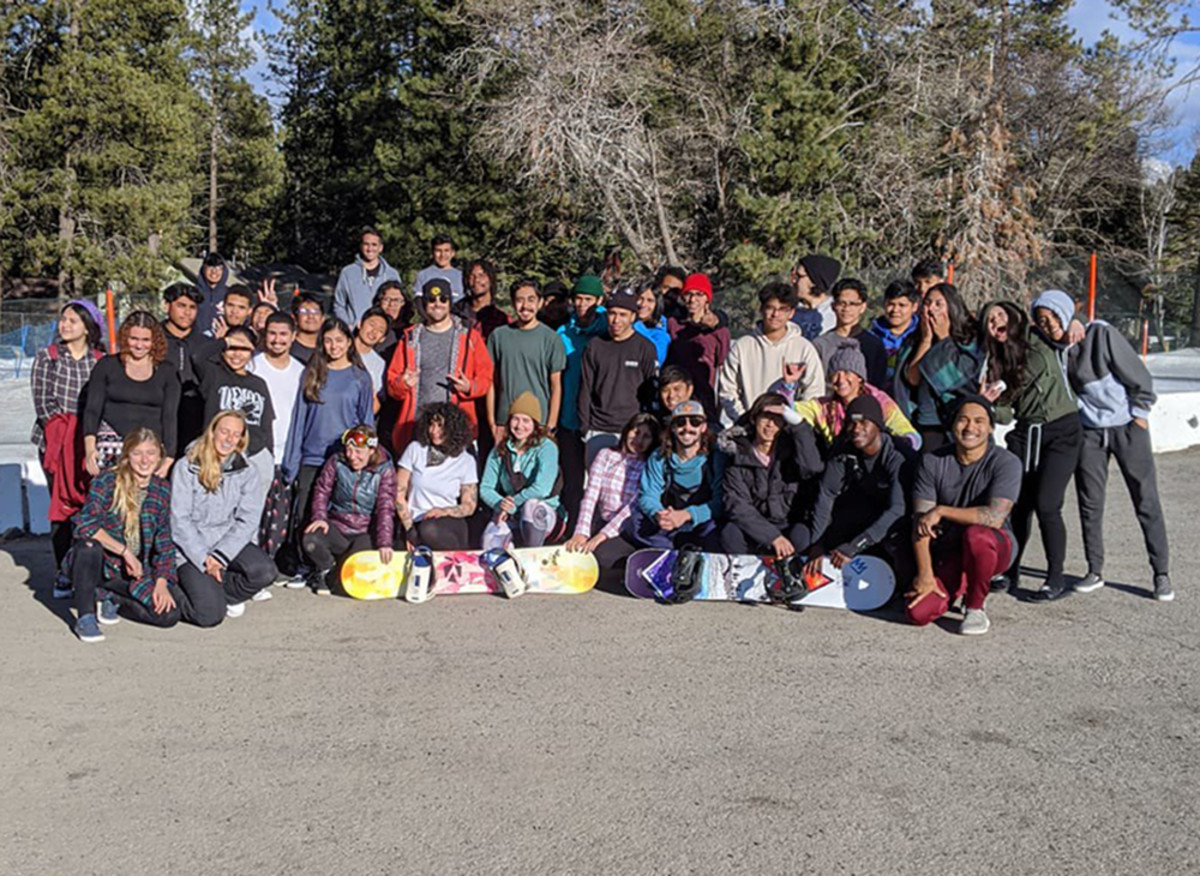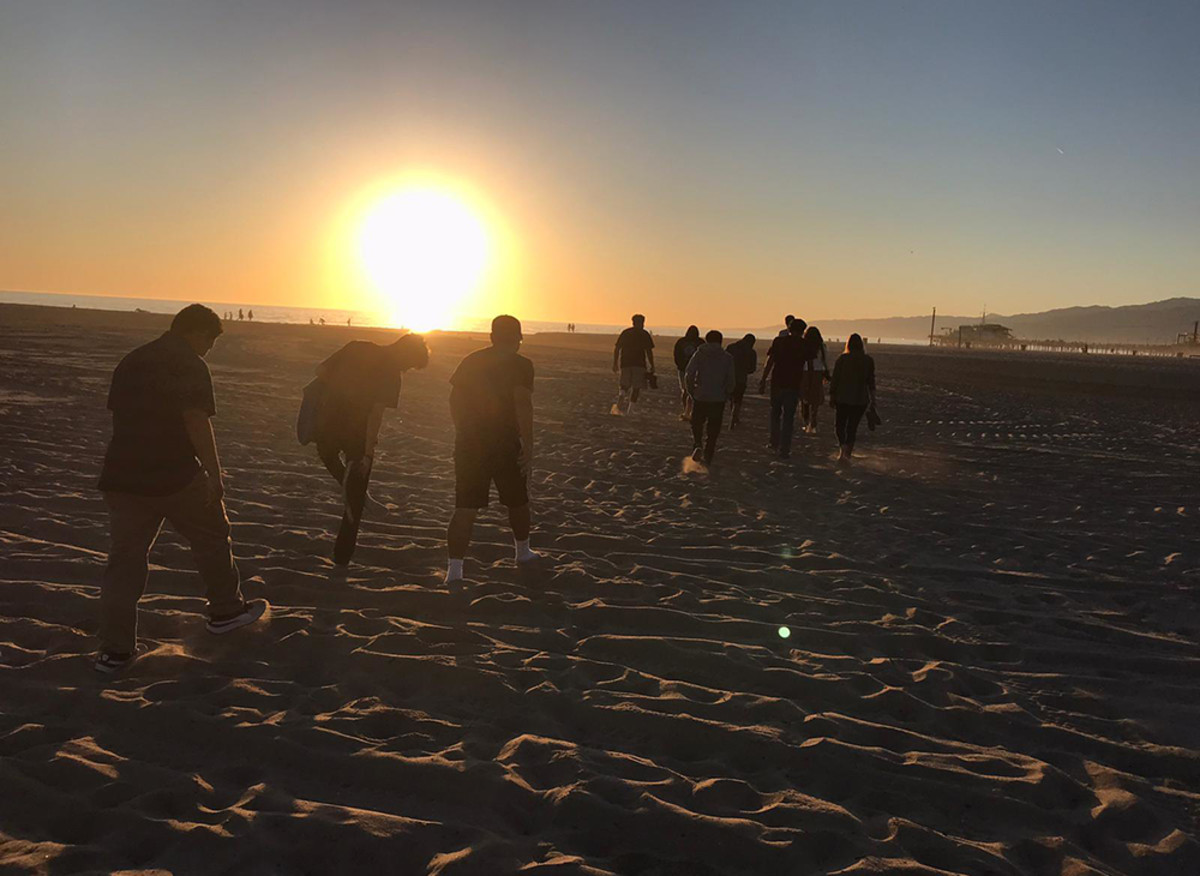For many Americans, 9/11 was a watershed moment—especially those living in New York City. Take Steve Larosiliere, for whom the close-to-home events triggered “a crisis of consciousness.” It’s a moment that he compares to the cultural reckoning that is happening now in such uncertain times. “People are seeing their environment change,” Larosiliere says, explaining how such timing set him on a path toward mentorship.
“That was when I started to mentor foster kids—kids from…low income,” he says, before another noticeable hesitation. “I started mentoring Black kids.”
Larosiliere went on to found STOKED with Selema “Sal” Masekela. Stoked connects kids with mentors in action sports to provide opportunity and access while teaching leadership. To this point, the organization’s used phrases like “urban” and “at risk,” but in the last month, Larosiliere has been more direct in that the majority of those he is looking to impact are children of color.

He was snowboarding at Whistler in 2004 when the idea crystalized.
“I had rode a lot that winter and I was getting so much from snowboarding,” Larosiliere says. “It was my last run of my last day of the season, and I was just thinking, ‘Man, I wish my mentee was here with me. If he saw these mountains, he would lose his mind.’ He never left the concrete of New York.
“And I thought, ‘Maybe I should start a snowboard program,’” he recalls.

MEN’S JOURNAL: Can you give us a little more background on Stoked?
STEVE LAROSILIERE: In my community, I was surrounded by Black, Latino and Caribbean people like myself. But I went to an all-white school. So it gave me very fluid code-switching skills, going between different environments. So we have these Black and brown kids being mentored by people who live on the other side of town.
Action sports are mostly white cultures. I wanted Black kids and poor kids to see what life was like, the way other people experienced it. I just knew what action sports had taught me about myself. And I thought, “Imagine what these kids would learn about themselves.” They could be learning resiliency, how to take advantage of opportunities, see obstacles as chances to grow. I didn’t think we were doing social justice work, but we are. These kids never see the ocean and they don’t know how to swim.
I was working with kids who never get a chance to interact with different cultures and lived in Black communities with a lack of investment. The schools are underfunded, there are less resources, way too much police presence and a lack of opportunity. And therefore you have blight, frustration, and hopelessness. Organizations like Stoked are giving kids an opportunity. We’re giving them the skills, relationships and opportunity to do something.
Now with programs in New York and L.A., I’ve seen how action sports helps kids to reshape their identity as a surfer, as a skater or a snowboarder. Progression is the name of the game and you’re elevated by the people around you.
How has your work changed in the last month?
Unfortunately, we hadn’t been able to do any mentoring programs because of the pandemic and we had to hold off on everything for the summer. We’re raising money and getting a little breathing room for the future. It’s so hard to tell what life will look like from month to month.
But with the push for social change, we have new people noticing us. It’s like, “Oh, Stoked Mentoring…oh, Black kids…” There are people we haven’t heard from in a long time. There are donors and brands reaching out to get involved.
So we have to run with this. We’ve made a little pivot in training some of our mentors, teaching them how to navigate the culture. We have a campaign to get people to pledge their time. And yes, it’s great that they want to help. But no, you shouldn’t help without working on your own stuff. It’s teaching people how to recognize conscious and unconscious bias. It’s being able to explain why Black lives matter.

What is the greatest challenge at hand?
Keeping the momentum up. It’s truly about white people doing the work.
Racism is deliberately institutionalized. Cities are designed and certain highways bypass neighborhoods so that a white person or a person of means would never have a reason to go to a certain neighborhood. You have to look at redlining and what that did to communities. Role models weren’t there for these kids. You want to have Black surfers to mentor these kids, but there aren’t many Black people that know how to surf. If Blacks don’t have access to water during Jim Crowe, they didn’t know how to swim.
The topic is only on the forefront now because of the protests. It’s not a sprint. It has to be a marathon. How to we make this moment part of our life?
Any signs of hope?
I see hope in the Black Lives Matter movement. I see hope in my white friends who are educating themselves. I see hope in young people. They’re the ones out there. I’m hopeful for All Black Lives Matter, including the LGBTQ community. I believe this is really a moment to help level the playing field. Obviously, the Black Lives Matter paddle-out in Encinitas [CA] was really inspiring.
We’re planning our programming for the fall. We’re recruiting and training mentors. We’re taking this downtime to retool in this climate. We’re teaching white mentors about understanding context and what challenges kids are having. Race has always been a part of what we do and this is an opportunity to have elevated conversations about it.
How can folks help?
Go to Stoked. Volunteer to be a mentor. We’ll train you to be anti-racist and to help encourage. If you don’t live in New York, L.A. or Chicago, we have other partners that we can refer you to that will train you. Be a mentor so you can be in support of them and their future.
— See our full series of Neighborhood Heroes, profiling the good Samaritans doing thankless work next door. We raise our glasses to all the local heroes on the front lines—whether it’s the hospital workers and grocery stockers providing essential services in this unique moment of dual health and economic crises, to community organizers leading our broader cultural reckoning and search for social justice. #weoweyoudrink
from Men's Journal https://ift.tt/2Wr0rrj



0 Comments